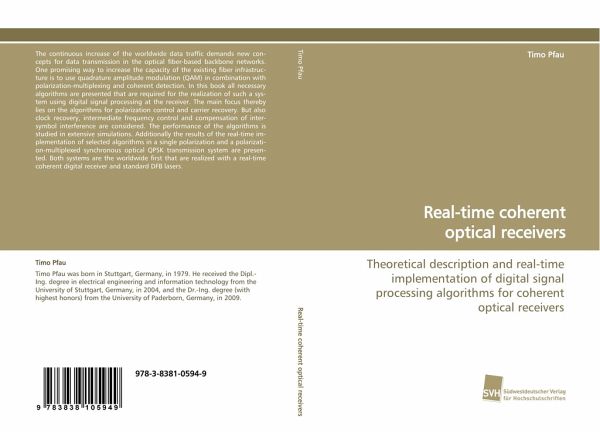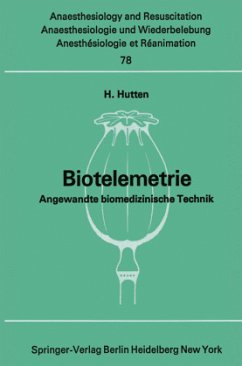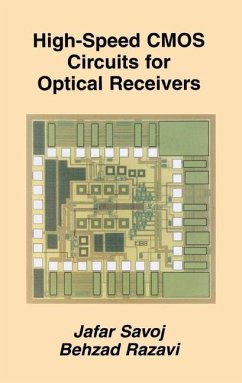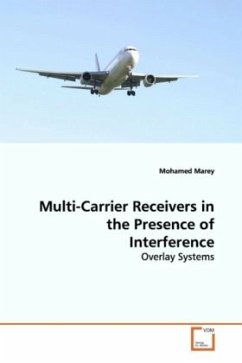
Real-time coherent optical receivers
Theoretical description and real-time implementationof digital signal processing algorithms for coherentoptical receivers
Versandkostenfrei!
Versandfertig in 6-10 Tagen
79,00 €
inkl. MwSt.

PAYBACK Punkte
0 °P sammeln!
The continuous increase of the worldwide data trafficdemands new concepts for data transmission in theoptical fiber-based backbone networks. One promisingway to increase the capacity of the existing fiberinfrastructure is to use quadrature amplitudemodulation (QAM) in combination withpolarization-multiplexing and coherent detection. In this book all necessary algorithms are presentedthat are required for the realization of such asystem using digital signal processing at thereceiver. The main focus thereby lies on thealgorithms for polarization control and carrierrecovery. But also clock recove...
The continuous increase of the worldwide data traffic
demands new concepts for data transmission in the
optical fiber-based backbone networks. One promising
way to increase the capacity of the existing fiber
infrastructure is to use quadrature amplitude
modulation (QAM) in combination with
polarization-multiplexing and coherent detection.
In this book all necessary algorithms are presented
that are required for the realization of such a
system using digital signal processing at the
receiver. The main focus thereby lies on the
algorithms for polarization control and carrier
recovery. But also clock recovery, intermediate
frequency control and compensation of intersymbol
interference are considered. The performance of the
algorithms is studied in extensive simulations.
Additionally the results of the real-time
implementation of selected algorithms in a single
polarization and a polarization-multiplexed
synchronous optical QPSK transmission system are
presented. Both systems are the worldwide first that
are realized with a real-time coherent digital
receiver and standard DFB lasers.
demands new concepts for data transmission in the
optical fiber-based backbone networks. One promising
way to increase the capacity of the existing fiber
infrastructure is to use quadrature amplitude
modulation (QAM) in combination with
polarization-multiplexing and coherent detection.
In this book all necessary algorithms are presented
that are required for the realization of such a
system using digital signal processing at the
receiver. The main focus thereby lies on the
algorithms for polarization control and carrier
recovery. But also clock recovery, intermediate
frequency control and compensation of intersymbol
interference are considered. The performance of the
algorithms is studied in extensive simulations.
Additionally the results of the real-time
implementation of selected algorithms in a single
polarization and a polarization-multiplexed
synchronous optical QPSK transmission system are
presented. Both systems are the worldwide first that
are realized with a real-time coherent digital
receiver and standard DFB lasers.












